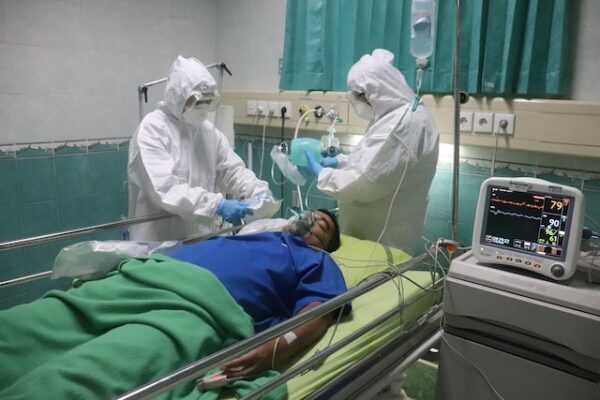NICU of Lifetron Hospital are equipped with state-of-the-art equipment, specially designed for infants. Our healthcare professionals are specially trained in new-born care.
A superior NICU can give your baby a second chance of life, but you must know few things before evaluating all the options available with you. There are four different levels of NICUs – Level I, Level II, Level III and Level IV – each classified on their level of expertise and specialist care. The higher the level, the more specialized the care. If you’re at risk of a preterm delivery or have had complications in your pregnancy, it’s worth considering a hospital with a higher-level NICU. Here’s what you should know.
NICU is created for sick new-borns who need specialized treatment. Most often, babies who need to go to the unit are admitted within the first 24 hours after birth. Generally, premature babies, low & very low birth weight babies, babies with congenital conditions, and babies with complications like meconium aspiration or respiratory diseases are admitted to the NICU.
There are four different levels of NICUs – Level I, Level II, Level III and Level IV – each classified on their level of expertise and specialist care. The higher the level, the more specialized the care. If you’re at risk of a preterm delivery or have had complications in your pregnancy, it’s worth considering a hospital with a higher-level NICU. Here’s what you should know.
Level I NICU: The most basic level NICU can render neonatal resuscitation, providing treatment to newborns, stabilizing and providing care to infants born between 35 and 37 gestational weeks, and treating infants born with illnesses at less than 35 gestational weeks. Level I NICU is managed by paediatricians, general physicians, nurses and other medical specialists.
Level II NICU : As next level of NICU, Level II NICUs provide all the services of a Level I NICU, plus additional specialized services-
- Care to infants as premature as 32 gestational weeks, or weighing as little as 1,500 grams,
- Suited for infants with underdeveloped immune systems or moderate illnesses,
- For infants requiring mechanical ventilation or continued care after intensive treatment.
As the next level of neonatal intensive care, at Level II, new-borns are taken care by paediatricians, neonatologists, neonatal nurses, as well as all those medical specialists required of a Level I NICU.
Level III NICU: As third level, these NICUs are required to have paediatric surgeons, paediatric medical sub specialists, paediatric anaesthesiologists, and paediatric ophthalmologists. It is equipped to provide critical life support, specialized care of infants born as early as 27 to 30 weeks, treatment for serious illnesses and full-spectrum respiratory support including high-frequency ventilation and advanced imaging.
Level IV NICU: It is the highest standard of neonatal intensive care, comprising paediatric surgical sub specialists, in addition to all the expert care providers and specialized services of a Level III NICU. It also offers services like extra corporeal membrane oxygenation and hospital-to-home transport services.
Delivery is a celebration and even if you are assured of a healthy and normal delivery, it’s always prudent to choose a facility with a higher level of NICU.
A Level III or Level IV NICU is more than a potential lifeline for your baby. It’s a reflection of the quality of healthcare system of the hospital of your choice. If you’re evaluating hospitals, Lifetron Hospital is the right choice with Level III NICU which is gearing up for Level IV NICU facilities.

